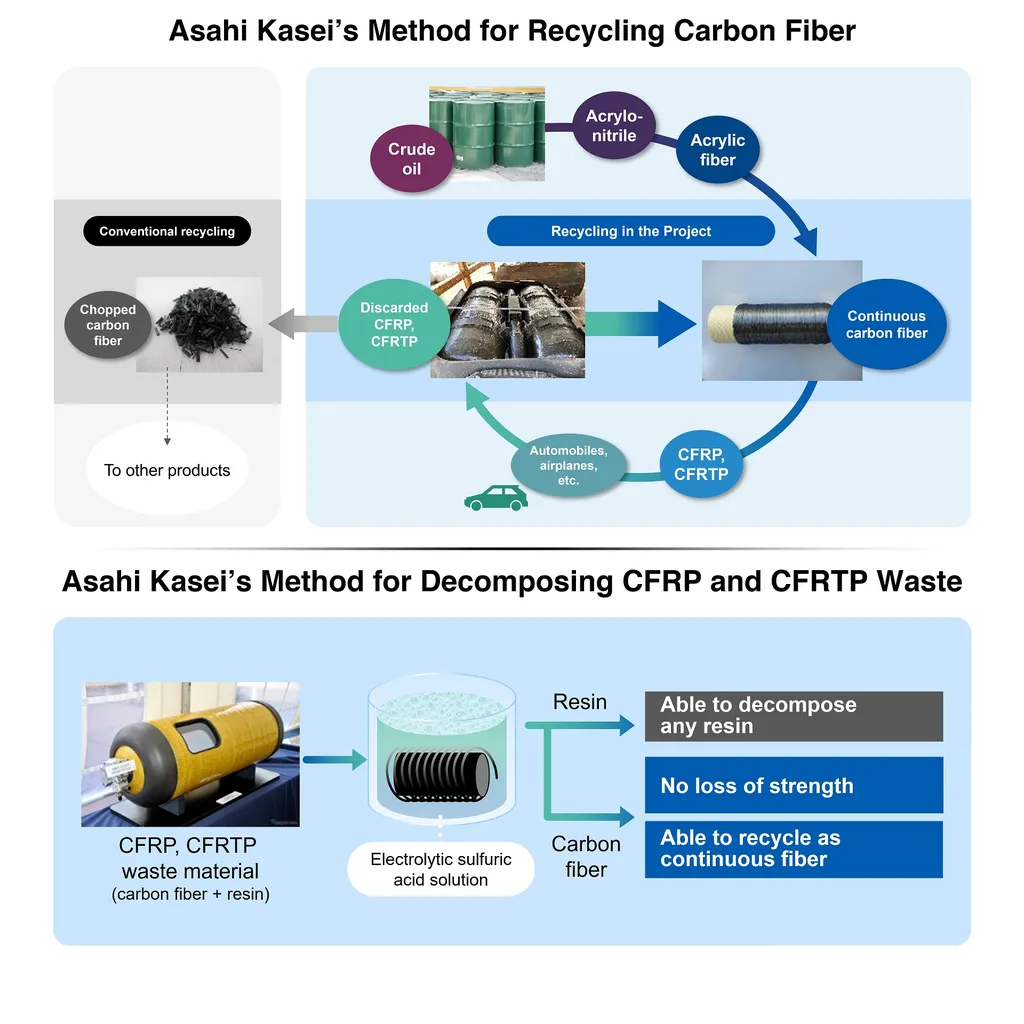In a significant stride towards sustainable materials management, researchers have evaluated the eco-efficiency of a novel recycling system for carbon fibre reinforced polymers (CFRP), offering promising implications for industries, particularly the energy sector. The study, led by Eneko Urruzola from Innovation Tree S.L. and Rey Juan Carlos University, provides a comprehensive assessment of a recycling process that combines shredding, pyrolysis, and solvolysis, marking a potential shift in how we handle end-of-life CFRP products.
Carbon fibre, renowned for its exceptional mechanical properties and lightweight nature, has become indispensable in various industries, from aerospace to energy. However, the surge in CFRP demand has led to a growing pile of end-of-life products, necessitating environmentally friendly recycling solutions. “The increasing use of CFRP has outpaced our ability to manage its waste,” Urruzola explains. “Our work aims to bridge this gap by providing a viable recycling alternative that is both economically and environmentally sound.”
The study, published in *Cleaner Materials* (translated from Spanish as *Cleaner Materials*), presents a techno-economic and environmental analysis of recycled carbon fibre from the innovative recycling system. For benchmarking purposes, the researchers also assessed conventional carbon fibre derived from polyacrylonitrile. The results reveal a levelised cost of €4.83 and a carbon footprint of 22.7 kg CO2 eq per kilogramme of recycled carbon fibre. Moreover, the factor-X results indicate that the recycled carbon fibre outperforms its conventional counterpart in terms of eco-efficiency.
The commercial impacts of this research are substantial, particularly for the energy sector, where CFRP is widely used in wind turbine blades and other components. As the industry grapples with the challenge of managing end-of-life turbine blades, this recycling system offers a promising solution. “The energy sector stands to benefit significantly from this technology,” Urruzola notes. “Not only does it provide a sustainable way to manage waste, but it also offers a cost-effective alternative to conventional carbon fibre.”
The study’s findings could shape future developments in the field by encouraging further investment in recycling technologies and promoting the circular economy. As industries strive to reduce their environmental impact, innovative recycling systems like the one assessed in this study will play a pivotal role. By demonstrating the eco-efficiency of recycled carbon fibre, the research paves the way for a more sustainable future, where waste is minimized, and resources are used more effectively.
In the quest for sustainable materials management, this study marks a significant milestone. As the energy sector and other industries continue to grapple with the challenges of CFRP waste, the recycling system evaluated by Urruzola and his team offers a beacon of hope. By providing a viable, eco-efficient alternative, the research not only addresses a pressing environmental concern but also opens up new avenues for commercial growth and innovation.

